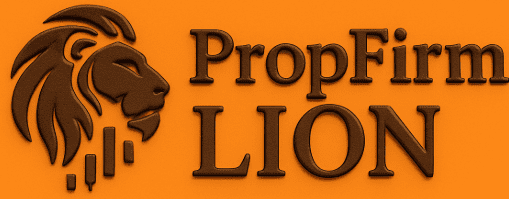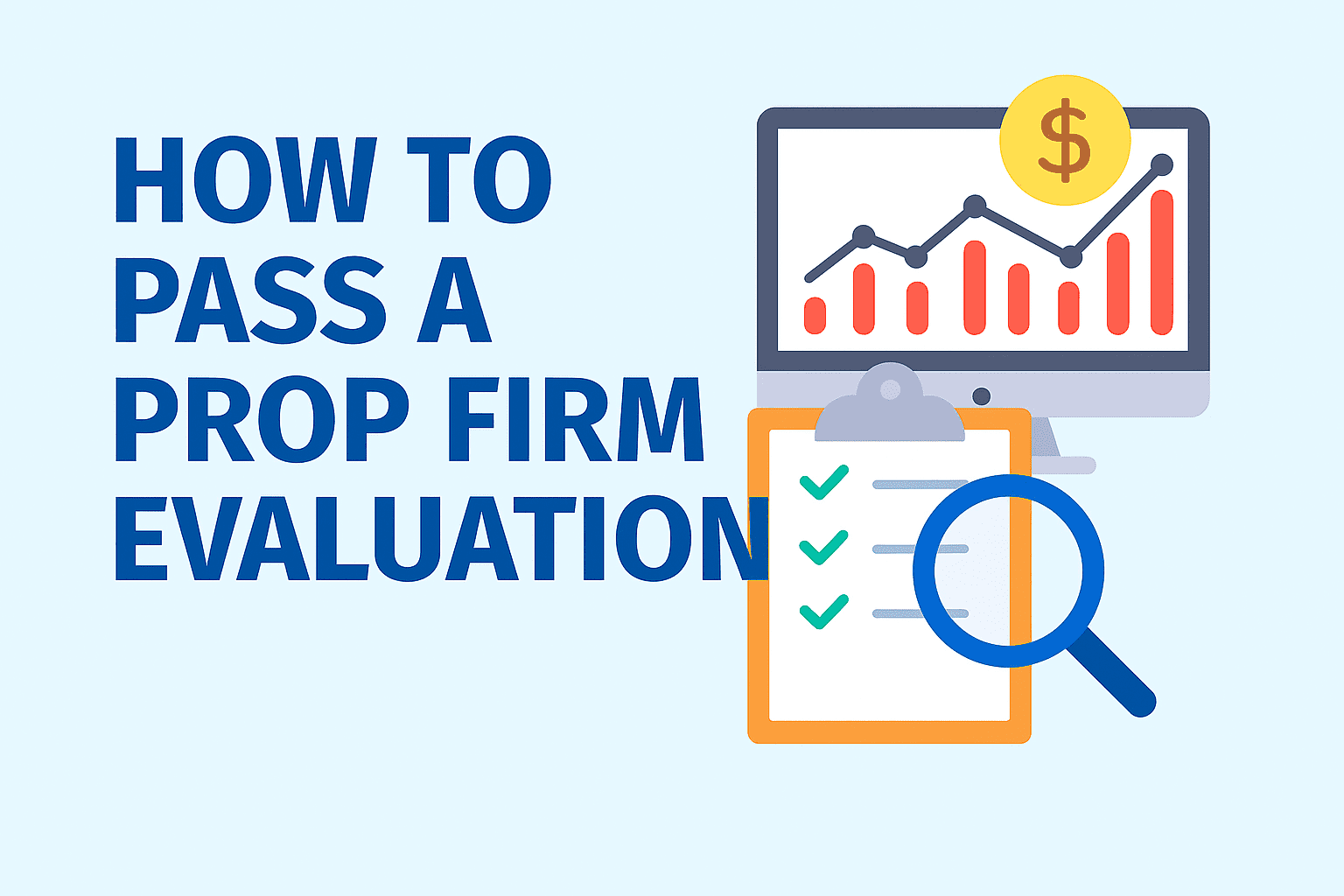In this article, I will discuss how to pass a prop firm challenge and succeed as a funded trader. Many aspiring traders struggle to meet profit targets while managing strict risk rules.
By focusing on disciplined strategies, proper risk management, and emotional control, you can increase your chances of passing the challenge and unlocking professional trading opportunities with real capital.
What Is Prop Firm Challenge?
A Prop Firm Challenge serves as an evaluative mechanism employed by proprietary trading firms to ascertain a trader’s proficiency prior to authorising concession to a funded trading account.
Candidates are obliged to realise predetermined profit objectives within a defined period whilst conforming to rigorous risk management stipulations, such as limits on daily losses and cumulative drawdown thresholds.

This testing architecture aims to verify that the trader can sustain discipline and prudent decision-making amidst actual market dynamics.
Successful completion of the challenge entitles the trader to manage the firm’s capital and to participate in a profit-sharing arrangement, thereby constituting an enticing route for competent traders to secure institutional funding whilst obviating exposure of personal capital.
How To Pass Prop Firm Challenge
Case Study: Completing the FTMO Prop Firm Evaluation

Comprehend Program Specifications
- The FTMO evaluation mandates that participants achieve a 10% cumulative return within a 30-day period (applicable to the standard account) while simultaneously adhering to a maximum intra-day loss of 5% and an aggregate loss threshold of 10%.
- Familiarizing oneself with these parameters safeguards against rule infractions that would otherwise result in immediate termination of the evaluation.
Select an Appropriate Trading Paradigm
- Assess the relative advantages of day trading, swing trading, and scalping, and elect the format that aligns with your personal competencies.
- For instance, a swing trading orientation may mitigate the propensity to overtrade and alleviate psychological strain.
Formulate a Reproducible Trading Approach
- Prior to the live evaluation, validate the approach in an extensive demo setting.
- Prioritize high-conviction setups and implement disciplined risk controls, capping exposure at 1–2% of trading capital per transaction.
Regulate Psychological Bias and Systematic Drawdowns
- Refrain from elevated risk behavior, such as loss-chasing or revenge positioning.
- Maintain a systematic trading log to quantify performance, catalog errors, and facilitate constructive self-assessment.
Adhere to the Trading Blueprint and Review Outcomes
- Pursue a strategy of incremental, consistent profit, rather than seeking high-risk, high-reward trades.
- Should the daily profit target be attained ahead of schedule, evaluate the prudence of halting activity to minimize risk to the account balance.
Conclude the Challenge Successfully
- Traders who integrate thorough pre-trade analysis, steadfast adherence to daily routines, and strict compliance with the program’s guidelines are positioned to reach the FTMO challenge conclusion and subsequently gain allocation to an account with a profit-pool model.
Why Passing The Challenge is Important for Traders

Completing a proprietary firm’s evaluation is a decisive benchmark for traders, permitting them to manage substantial professional capital while insulating their personal funds from risk.
Upon meeting the evaluation criteria, traders are granted a live account typically paired with a profit-sharing structure, thereby translating skill into measurable income.
The process simultaneously substantiates a trader’s command of strategy, discipline, and risk governance, bolstering their reputation among peers and recruiters alike.
Furthermore, the evaluation framework serves as a controlled backdrop within which to cultivate the consistency and psychological fortitude deemed essential for enduring success and performance sustainability in the markets.
Is it hard to pass the prop firm challenge?
A successful completion of a proprietary firm evaluation extends beyond a mere command of trading mechanics. It necessitates a firm applied grasp of market mechanics, a rigorously constructed tactical blueprint, and uncompromising capital protection protocols.
Complementary to these frameworks is the imperative of psychological rigor—mitigating rash behavior, attenuating situational anxiety, and adhering to predetermined directives despite episodic drawdowns.
Operators are obliged to harmoniously reconcile measured delay with evidence-based initiative, prioritising sustained incremental appreciation rather than the allure of opportunistic spikes.
The deliberate cultivation of these interdependent competencies materially augments the probability of meeting the firm’s mandated performance criteria.
Choosing The Right Prop Firm
Reputation and trustworthiness
Partner only with prop firms noted for solid performance, transparent communication, and consistently positive trader testimonials on verified platforms.
Challenge requirements and rules
Review the evaluation criteria carefully, including days-per-trade, maximum drawdown settings, and overall profit expectations, to prevent early elimination.
Account size and funding options
Identify an account scale and subsequent funding path that corresponds with your risk appetite, trading strategy, and capital growth timetable.
Fees, profit splits, and withdrawal conditions
Analyze evaluation fees, profit distribution percentages, and withdrawal stipulations to retain the highest net earnings and adaptable trading arrangements post-funding.
Common Mistakes To Avoid
Over-leveraging positions Using high leverage magnifies risk; losses can exceed initial equity.
Ignoring rules of the challenge Breaching challenge guidelines incurs instant disqualification, nullifying all progress.
Emotional or revenge trading Emotional reactions drive reckless trades, frequently eroding capital swiftly.
Inadequate preparation or missing strategy Trading absent a tested plan diminishes discipline, eroding overall profitability.
Pros And Cons How To Pass a Prop Firm Challenge
| Pros | Cons |
|---|---|
| Access to funded trading capital without risking personal money. | Challenges can be stressful, testing emotional and mental discipline. |
| Opportunity to earn profit share from successful trades. | Strict rules like drawdowns and daily loss limits can be limiting. |
| Validates your trading skills and consistency to the market. | Failing the challenge means losing fees and starting over. |
| Encourages structured trading and risk management, building discipline. | Pressure to meet targets can lead to overtrading or impulsive decisions. |
| Opens doors to career opportunities in professional trading firms. | Some firms charge challenge fees, adding upfront costs. |
Conclsuion
Conclusion Completing a proprietary firm evaluation necessitates the integration of thorough preparation, unwavering discipline, and well-defined strategic planning.
Successful candidates must internalize the firm’s parameters, enforce strict risk limits, and retain composure during routine execution of a coherent trading blueprint.
Attainment of the challenge’s objective grants access to funded accounts, the ability to generate profit, and pathways to professional advancement; consequently, tenacity, patience, and consistently measured performance emerge as vitally important traits for the realization of enduring trading achievement.











Got a Questions?
Find us on Socials or Contact us and we’ll get back to you as soon as possible.